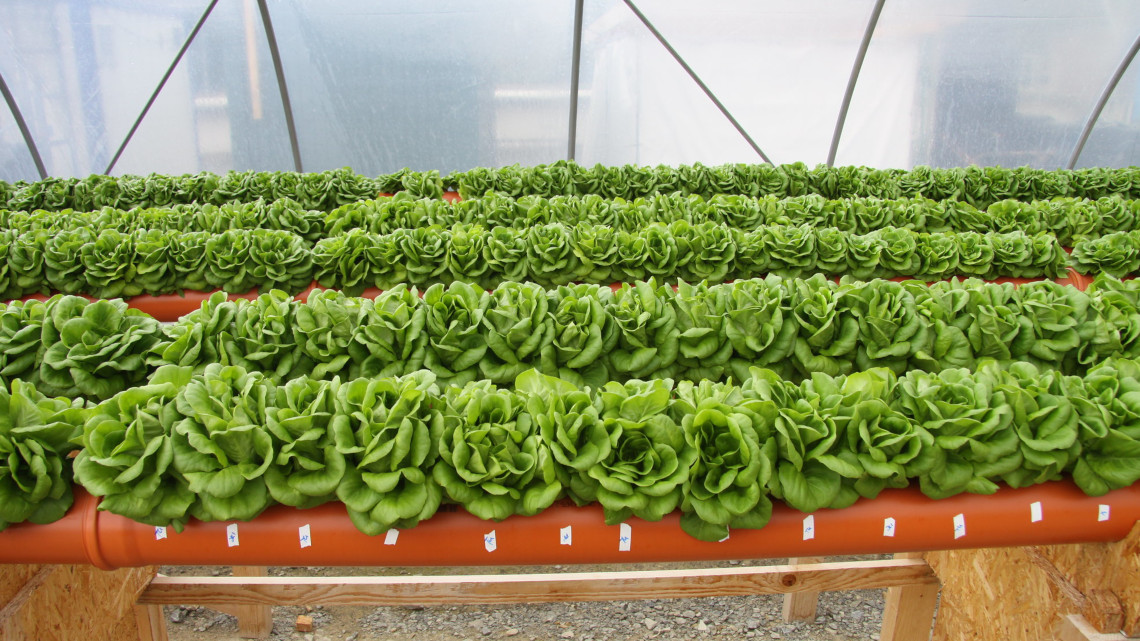Growing vegetables with recycled wastewater
A new irrigation concept for vegetable cultivation could set a precedent: In the Hypowave project, treated water from a sewage treatment plant was used for growing lettuce in the greenhouse.

Water is a precious resource and often causes conflicts of use. This is because this resource, which is vital for humans, animals and plants, is coming under increasing pressure from climate change, urbanization and pollution. According to experts, agriculture alone accounts for 70% of global water consumption. Not only in warm regions such as Spain, but also in Germany, drought and heat are already causing bottlenecks in irrigation and thus yield losses. Alternative solutions are needed to avoid conflicts of use. There is now a new irrigation concept for crop cultivation.
In the HypoWave-project, 13 partners from research and industry have set their sights on wastewater for sustainable crop cultivation. The project was supported by the German Federal Ministry of Education and Research as part of the Wave funding measure. The aim was to clarify whether the use of recycled wastewater can reduce the high-water consumption in agricultural production and whether nutrients extracted from the wastewater can be used for the production of various vegetables and ornamental plants.
Hydroponic process optimized through wastewater utilization
On the site of the sewage treatment plant in Hattorf near Wolfsburg, a greenhouse was built especially for this purpose for growing vegetables. In the pilot project, everything revolved around the hydroponic cultivation of lettuce plants, i.e. the plants were placed in containers without soil and supplied exclusively with a nutrient solution. "What is special about the bottomless hydroponic plant cultivation in our pilot plant is that we were able to successfully optimize the already water-saving process by using specially treated wastewater," says project manager Thomas Dockhorn from the Technical University of Braunschweig. The treated wastewater was previously treated and sanitized in a multi-stage process in the wastewater treatment plant.
Win-win situation for farmers and wastewater disposal companies
With the Hypowave process, the researchers have not only opened up an unused water source for plant cultivation. They were also able to show that lettuce plants are suitable for more extensive wastewater treatment because they absorb nitrogen and phosphorus. Dockhorn speaks of a win-win situation for agriculture and wastewater disposal companies. "Agricultural businesses with an interest in innovation are now in demand for the implementation of the HypoWave process," adds project coordinator Martina Winker from ISOE - Institute for Social-Ecological Research in Frankfurt am Main.
The method is not only suitable for growing lettuce, but also for other vegetables such as cucumbers, peppers and tomatoes, the researchers emphasize. Above all rural areas with regional water shortages and sewage treatment plants without significant industrial discharges, as well as countries with chronic water shortages, could therefore benefit from the new irrigation concept.
Multi-level risk management recommended
Examination of the wastewater used in the project showed that neither the recycled water nor the salads are microbially contaminated. In order to ensure that this is achieved in practice, the team advises that as little wastewater as possible from industrial plants should be used when choosing a wastewater treatment plant. A multi-stage risk management is recommended - starting with industrial hygiene and safety at work and including additional elements such as UV irradiation of irrigation water and the strict separation of water and plant spheres. Finally, the project team also provides tips on how such a greenhouse can be aesthetically embedded in the landscape without endangering the ecosystem services of the landscape.
bb/mb


